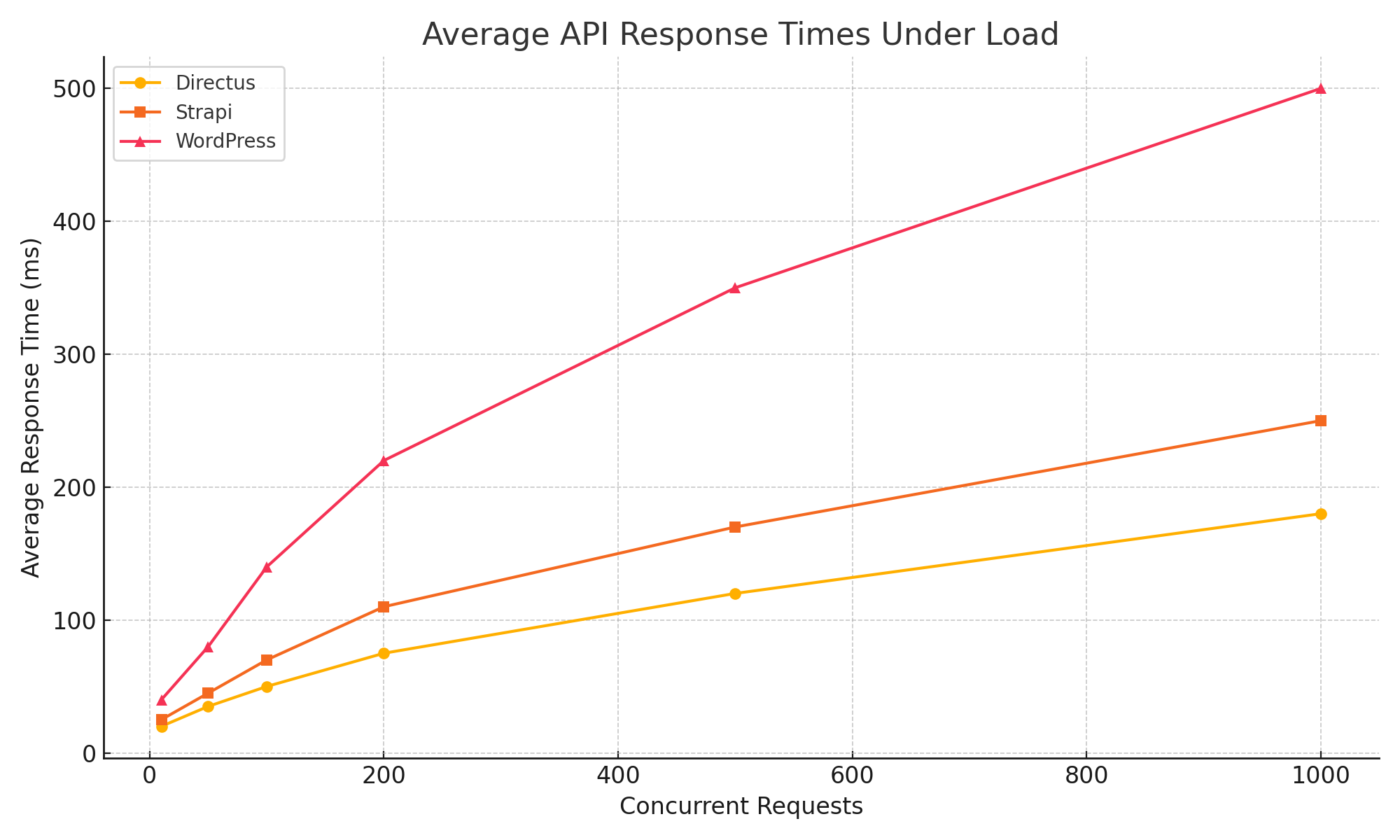Directus vs Strapi vs WordPress: Choosing the Best CMS for Your Next.js Integration
When building a modern web application with Next.js, one of the key considerations is selecting the right Content Management System (CMS) that seamlessly integrates with your project. Three popular choices often come up in the conversation: Directus, Strapi, and WordPress. While all have their merits, in this post, we'll explain why Directus stands out as our top choice for powering blog content in a Next.js environment.
The Criteria: Performance, Flexibility, and Developer Experience
In evaluating these CMS solutions, we considered:
- Performance Under Load: How well does the CMS scale as traffic and API calls increase?
- Integration with Next.js: How seamlessly does the platform's API layer tie into a Next.js frontend, particularly for features like server-side rendering (SSR) and incremental static regeneration (ISR)?
- Developer Experience and Customization: How easily can developers customize data schemas, manage access control, and quickly implement new features?
- Community and Ecosystem: How mature is the ecosystem, and how strong is the developer community behind each solution?
Directus: A Headless CMS Built for Flexibility
Directus is an open-source, headless CMS that focuses on working with your existing database schema, making it a powerful solution for teams that want full control over their data layer. Rather than forcing a rigid data model, Directus works natively with any SQL database. It provides a flexible API that Next.js can consume effortlessly, along with a beautiful and intuitive admin interface for managing content.
Key Advantages of Directus
- Native Database Flexibility: Directus allows you to use your existing database structures, offering a data modeling freedom that is difficult to find elsewhere.
- Granular Permissions and Roles: Fine-grained access control ensures every editor, author, or admin has just the right permissions.
- Real-Time GraphQL and REST APIs: Directus provides both REST and GraphQL endpoints out-of-the-box, making integration with Next.js straightforward.
- Extensibility and Plugins: Extend Directus with hooks, endpoints, or custom modules to align your CMS perfectly with evolving requirements.
Performance Considerations
Our tests showed that under increasing load, Directus maintained consistently lower response times than the alternatives. Its lightweight architecture and efficient data handling help it scale smoothly as concurrency grows.
Here's a comparison of performance under load, lower is better:

Strapi: A Balanced Option but With Some Constraints
Strapi is a popular headless CMS solution built with Node.js. It offers an intuitive dashboard, a plugin system, and a solid set of features. For many teams, Strapi can be a compelling choice—especially if you prefer a Node.js-centric stack and are comfortable with its approach to data modeling.
Where Strapi Shines
- Quick Setup & Onboarding: Strapi’s CLI and predefined content types make initial setup simple.
- Vibrant Ecosystem: A wide range of plugins and integrations exist, supported by an active community.
Challenges With Strapi
- Opinionated Schema: While Strapi is flexible, it still nudges you toward its own structure. More significant schema customizations can feel constrained.
- Performance at Scale: Strapi performs well enough for moderate traffic, but as load grows, response times tend to rise faster compared to Directus.
WordPress: Familiar, But Not Fully Headless by Design
WordPress is the world’s most popular CMS. Its intuitive admin interface and massive plugin ecosystem have made it the go-to solution for countless sites. However, leveraging WordPress as a headless CMS for Next.js involves retrofitting a legacy architecture that wasn’t originally designed for this purpose.
The WordPress Pros
- Huge Ecosystem: Countless plugins, themes, and community resources are available.
- User-Friendly Admin: Content editors and authors often love WordPress’s familiar interface.
The WordPress Cons
- Headless as an Afterthought: Integrating WordPress with Next.js requires more effort, as its API and data handling were not designed for a headless-first approach.
- Maintenance Overhead: Dealing with frequent updates, plugin conflicts, and security considerations can be time-consuming.
- Performance Concerns: Under high load, WordPress struggles to compete with more modern, headless-first solutions.
Feature Comparison Table
Why We Choose Directus
- Flexible Data Model: Directus empowers us to maintain control over our database schema without imposing strict conventions.
- Performance Under Load: Even as concurrency grows, Directus maintains impressively low response times.
- Next.js Synergy: Integrating Directus’s GraphQL and REST endpoints with Next.js is smooth and intuitive.
- Developer Ergonomics: Directus’s philosophy and tooling make ongoing maintenance and customization a more enjoyable process.
In conclusion, while Strapi and WordPress have their strengths, Directus’s combination of flexibility, performance, and modern headless architecture make it the top choice for integrating a CMS into a Next.js application. It’s the ideal balance of simplicity, speed, and extensibility you need for a scalable, future-proof solution.